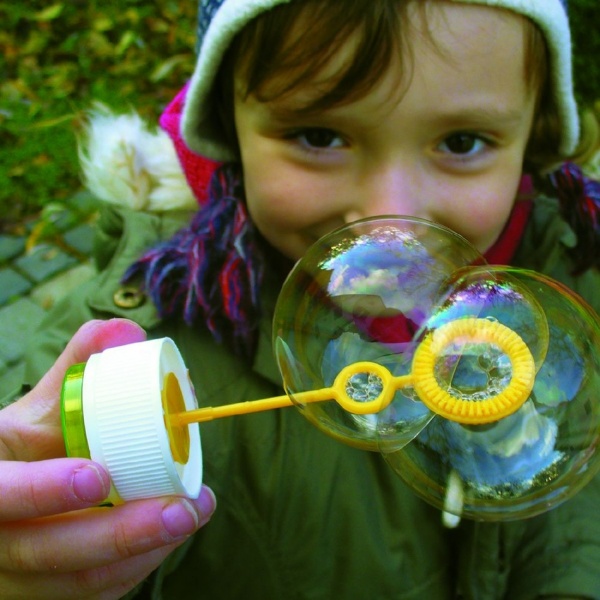Joint planning towards a healthy city
Healthy, equal, resilient and thus liveable municipalities are characterised by the fact that health concerns such as rest, recreation, well-being, physical activity, stress management and relaxation have a ...


YOUR FORUM FOR PLAY, SPORTS UND LEISURE AREAS

Playground@Landscape: How is the Children’s Commission of the German Bundestag made up? What does it stand for?
Eckhard Pols: The Commission for Observing Children’s Needs – in short: Children’s Commission (in German: KiKo) – is a subcommittee of the Board for Families, Senior Citizens, Women and Young People and consists of five regular members (currently one member per parliamentary group) and five representative members. The regular members are the children’s delegates of their parliamentary groups. The chair in the Children’s Commission rotates so that each member takes over the chairmanship. The order is based on the respective strength of the parliamentary group (CDU/CSU, SPD, FDP, The Left, Alliance 90/The Greens). The time in chair is currently 9 months with the current five parliamentary groups in the German Bundestag.
The Children’s Commission is a parliamentary and non-parliamentary special interest group for children. It wants to be a lobby for children and apply child-political signals. It checks laws and bills to see whether children’s interests are being considered there too. This extends to almost all political areas (family law, healthcare policy, traffic, town planning, etc.).
The Children’s Commission exclusively deals with topics which affect the situation of children in Germany. Therefore, it is not about the legal status of children in the proper sense, but far more about general topics such as health, disability, alcohol or social situation with respect to their particular organisation and set of issues for children and teenagers.
The Children’s Commission has set specific focal points for the 17th legislative period, such as children and neglect, teenagers and leisure, equal opportunities through early childhood education and support, participation of children and teenagers, youth and alcohol or also children of sick parents.
P@L: The Children’s Commission of the German Bundestag has set, among other things, the following focal point for the 17th legislative period: Teenagers and leisure – The installation of skating tracks, football grounds and children’s playgrounds are supposed to be supported by the Children’s Commission. How will this be implemented?
Eckhard Pols: The FDP Delegate Nicole Bracht-Bendt placed emphasis on the focal point “Teenagers and Leisure” for her time in Chair. The Children’s Commission will also invite professionals and technical experts to deal with this focal point, in order to obtain in-depth, detailed information about this topic. On the basis of this information, decisions and recommendations are (unanimously) adopted, which the Children’s Commission sends to the respective responsible political bodies, such as parliamentary commissions – e.g. the Family Committee, Government Departments at Federal and State levels or to the leaders of the Federal States of Germany.
As the Children’s Commission is not a decision-making body and does not have its own right of application, it has to turn, with its suggestions, to commissions and parliamentary groups with the goal of including these in the parliamentary activities.
P@L: “Respect for children”. That was the motto at the Universal Children’s Day. What’s behind it?
Eckhard Pols: For the Children’s Commission it was always a central request to demand respect for children in all areas of society. Respect for children is the indispensible basis and pre-condition for responsible contact with children. Respect also means consideration; that means children have to be pushed more into the focus of politics and into the midst of society. We have to find out what children need to offer them an even better future at all levels.
P@L: “Running. Jumping. Climbing. Of course it works!” was the motto at this year’s Child Safety Day. Minister von der Leyen tested – with the magazine “Bild der Frau”, edition 24/09 – a request for more safety on children’s playgrounds: Fatalities on the playground. How does the Children’s Commission advocate more safety, for example more safety on children’s playgrounds?!
Eckhard Pols: The example of the focus on “Teenagers and Leisure” shows that, in expert talks, the Children’s Commission will also be dealing with the safety on playgrounds to prevent accidents occurring.
P@L: Caution: loud children. The Children’s Commission is being requested to create active spaces suitable for children. How do you view this?
Eckhard Pols: Wherever there are children’s gardens and playgrounds, children have to be able to develop freely and live out their childhood. This means that they have to be able to grow up free from disturbances, such as lunch breaks. Children’s noise is not allowed to be the cause of restrictions in the development of children’s ways of life.
P@L: Is children’s noise an expression of zest for life?
Eckhard Pols: Children’s noise is an expression of zest for life which must be enunciated. It is the nicest and most normal thing there is and children have a right to free development and play. They need free space to learn about playful, social behaviour and to be able to develop mentally and physically. Children produce noises when they play and run riot. However, these noises are not the same as industry or traffic noises, because they are a natural expressive form of children’s behaviour. These free spaces are endangered and must therefore always be continually made safe for children.
The goal of the Federal Government is the extensive development of the care and support for children. Judgements repeatedly conflict against these goals, as they make day-care centres or playgrounds close because of the noise they produce. This throws up the question of how child-friendly our society really is.
I, therefore, greet the initiatives in the Federal Council of Germany as well as the parliamentary groups in the German Bundesrat that speak out for a clear legislative assessment that “children’s noise” is, as a rule, socially acceptable
Against this background, the Federal Government is planning an amendment to the Town and Country Planning Code, whereby day-care centres for children should be permitted in future in all residential areas, as well as clarification in the Federal Immissions Control Act that children’s noise will no longer be considered as a harmful environmental effect.
The interview was conducted by Thomas R. Müller (Playground@Landscape)
Photo: xxee | REHvolution.de / photocase.com